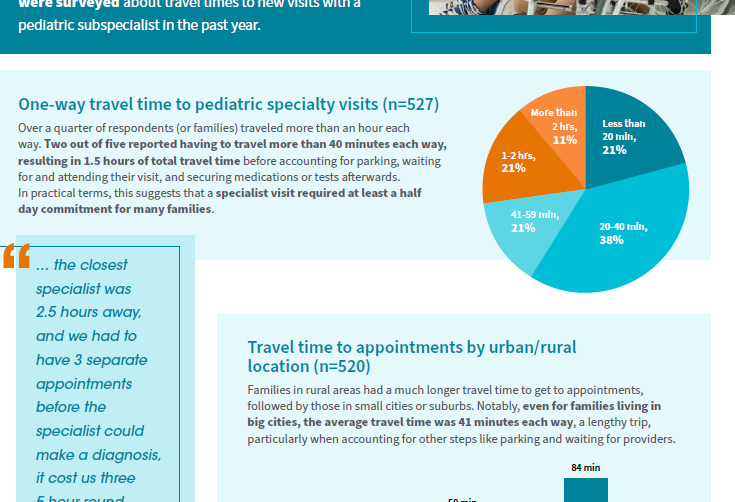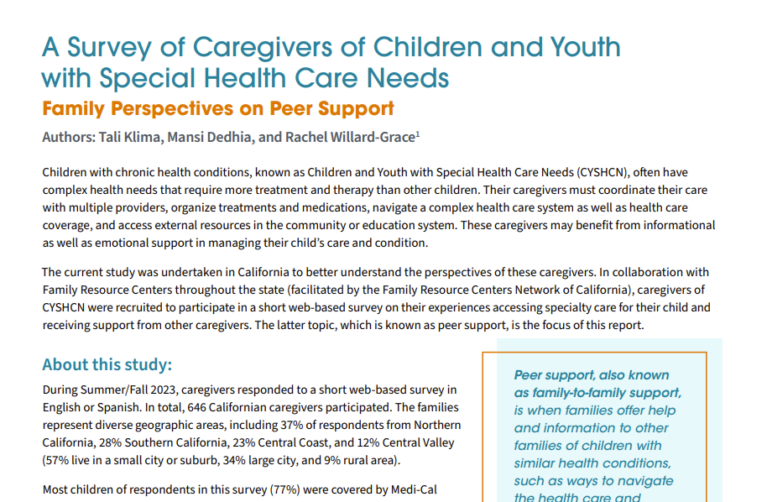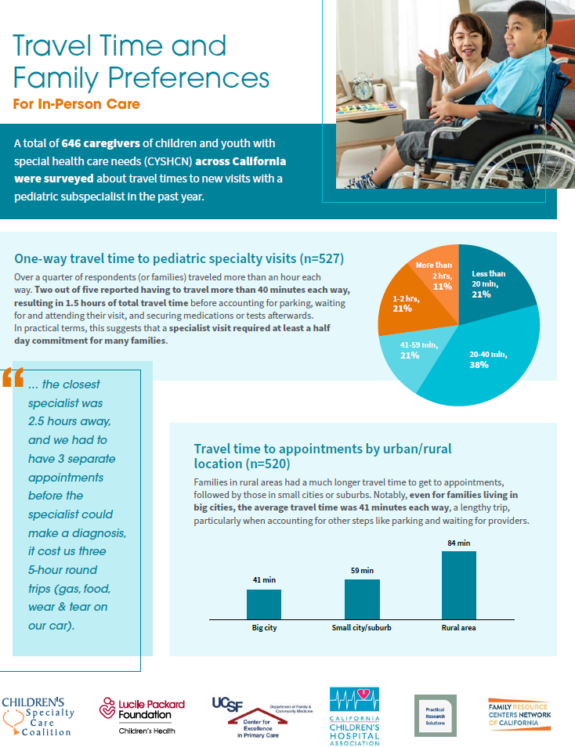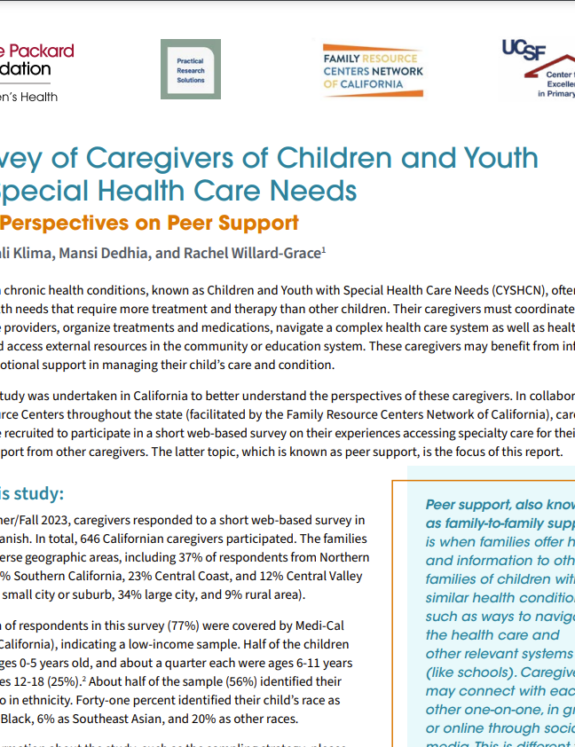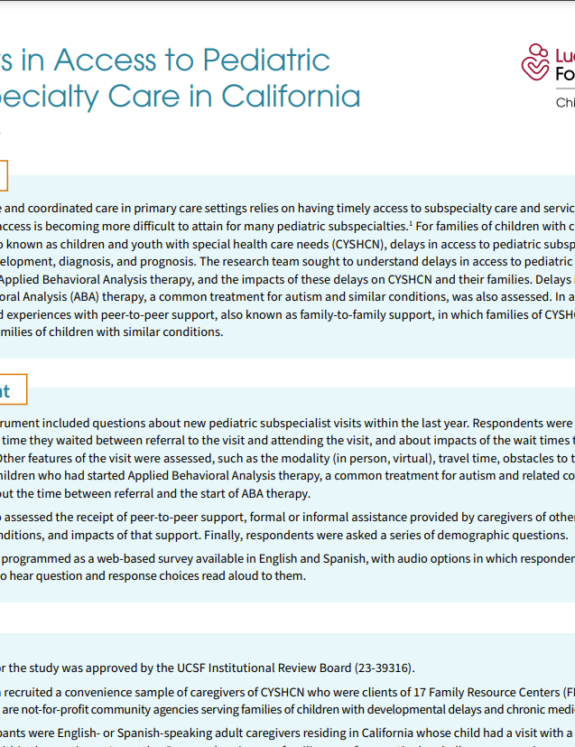Edward Schor, MD, to Retire from the Foundation: Looking Back and Looking Forward
Edward Schor, MD, who for the past eight years has led the Foundation’s work to improve the system of care for children with special health care needs, will retire July 2. Here he reflects on the Foundation’s progress and how best to continue efforts to create a system that works for children and families.
Q: In what areas do you think the Foundation has been most successful so far in promoting progress toward systems change?
We have made substantial progress on several fronts by:
- Supporting the development of consensus around system standards.
- Raising the visibility of the field, especially around complex care, with our symposium, webinars, publications, and grants.
- Addressing policy issues by supporting research and supporting advocates.
- Helping network the field by bringing together individuals and organizations that focus on similar issues.
- Providing information and, to some extent, guidance to public agency staff and policymakers.
Q: If you had unlimited grants funding, where would you invest?
There is a need for well-evaluated demonstration projects to identify and disseminate best practices in the care of CSHCN. I would focus on community-based medical homes using multi-disciplinary teams.
I also would propose a national initiative to promote meaningful engagement of families and youth in shaping health care policies, programs and services. Included in this would be not only advocacy work, but the assurance that families have access to all the supports they need – tangible, administrative, informational and emotional – to achieve good health and quality of life for their children and themselves.
Q: Can you name one or two feasible policy changes that you believe could dramatically improve the quality of life for CSHCN and their families fairly soon?
Adequate financing for the extensive professional services that they and their children require, including enhanced primary care, care coordination, and self-management supports. These services exist but are not a priority for payers so are not sufficiently available or of high quality.
Assurance that all parents of CSHCN are offered referral to family-to-family or parent-to-parent supports shortly after their children’s diagnoses. Offering these supports would be a prime example of value-based purchasing. Parents report that these connections are among the most helpful resources they receive, yet they are inconsistently made available when they should be a standard of care.
Our foundation has taken a very visible role advocating for inclusion of the voice of families in agencies, organizations and programs that serve them and their children. Meaningful participation of families in these venues is a relatively straightforward and inexpensive way to improve the effectiveness and quality of services and should be universally adopted.
Q: What advice would you give to people interested in improving systems of care?
- Be clear about what needs to be improved, what an improved system would look like, what barriers have prevented improvement, and what actions need to be taken to achieve improvement.
- Work to improve aspects of the health care system where you have knowledge and about which you can tell a convincing story.
- System change is difficult and requires years of perseverance, so persevere.
- Work with others.
Q: Since social determinants are being recognized as important in obtaining good health, how would you incorporate them into health care?
First, I would increase the role of primary health care in the overall health care system by mandating improved primary care quality and by providing adequate reimbursement when that quality is achieved.
Second, I would support the creation of formal networks linking health care providers to other community-based services needed by their patients. In some cases, co-location of service providers will be the best model.
Third, I would incrementally work toward comprehensive screening for personal and social factors that could affect patients’ health and functioning, but I would not make this solely an expectation of primary health care providers.
Finally, I would work to raise awareness that the impact of social determinants on health reflects the social inequalities in our society and that improving the health of the nation will require achieving greater equity and a more representative democracy.
Q: Is there anything you particularly would want people to know about, or pay attention to, in this field?
There is no question in my mind that health care should be considered a human right and that no adult or child should be denied appropriate care. Although good health rests primarily on personal and social circumstances, medical care remains of great importance. Currently, access to medical care is determined by an increasingly consolidated, profit-driven system of health plans, insurers, hospitals, and pharmaceutical companies rather than by a societal commitment to ensuring optimal health for all people.
Q: What’s next for the Foundation’s work regarding CSHCN?
Of course, that will be up to the Program staff, but I expect that in the near term they will continue to improve the system of care for CSHCN by focusing on quality standards, care coordination, and family engagement, which are our current primary focus areas.
